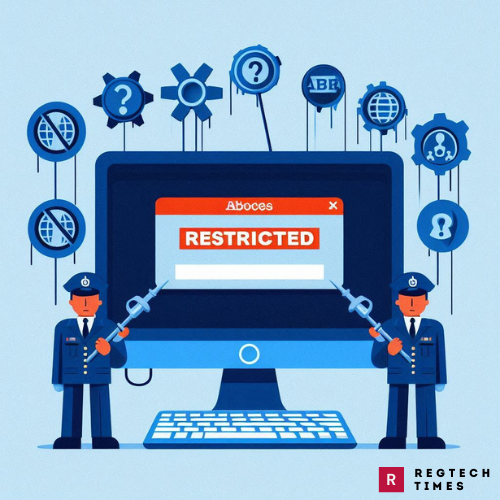In a recent development that emphasizes the growing tensions between governmental control and press freedom, YouTube has blocked viewers in India from accessing an investigative report by ABC’s Four Corners. The investigation, which accused the Indian state of threatening Australia’s national security by establishing a “nest of spies” to silence critics in Australia, has been geo-blocked following a legal request from the Indian government.
The Investigation and Its Findings
On June 17, ABC’s Four Corners program aired an investigation into the Indian government’s alleged efforts to stifle dissent among the Indian diaspora in Australia. The report claimed that Indian authorities had set up an extensive network of spies to monitor and intimidate critics of Prime Minister Narendra Modi’s government. This investigation highlights a troubling trend of foreign influence and interference aimed at silencing opposition voices abroad.
YouTube’s Response to the Legal Request
Following the broadcast, India’s Ministry of Information and Broadcasting (MIB) issued a legal request to YouTube to block the video in India. YouTube complied, stating that the restriction was implemented under India’s Information Technology (Intermediary Guidelines and Digital Media Ethics Code) Rules and the Information Technology Act. The nature of the order, however, was kept confidential.
In a statement to ABC, YouTube’s legal team explained that the platform reviews government removal requests when notified through the correct legal processes. “Government removal requests are reviewed by YouTube when notified through the correct legal processes, and content is restricted or removed in keeping with local laws and our Terms of Service when appropriate,” a spokesperson said.
ABC’s Stand on Press Freedom
ABC News director Justin Stevens expressed strong disapproval of the Indian government’s actions, reaffirming the organization’s commitment to independent journalism. Stevens stated that a healthy democracy requires press freedom. He criticized the efforts to silence robust journalism, emphasizing that such attempts would not deter ABC from continuing to report on issues of public interest.
ABC was given the option by YouTube to voluntarily block the video in India, but the organization declined, resulting in YouTube enforcing the block on July 27.
Previous Incidents and Broader Implications
This incident is not an isolated case. In March, following a similar demand from the Indian government, YouTube blocked two videos from ABC’s Foreign Correspondent program that covered the killing of a Sikh separatist. The nature of the orders in both instances remained confidential. Additionally, shortly after the previous video blocks, ABC News South Asia bureau chief Avani Dias encountered visa extension issues. Her visa was eventually renewed after significant lobbying by Australian diplomats and the office of Foreign Affairs Minister Penny Wong.
Prime Minister Narendra Modi’s government has shown a pattern of cracking down on international media that reports critically on its actions. This includes blocking a Canadian Broadcasting Corporation documentary on the killing of a Sikh separatist and a BBC documentary examining Modi’s role during the 2002 Gujarat riots.
Press Freedom in India
The actions taken by the Indian government have raised serious concerns about the state of press freedom in the country. Reporters Without Borders has issued a warning that “press freedom is in crisis” in India, highlighting the growing pressures on journalists and media organizations that challenge the government.
The blocking of the Four Corners investigation by YouTube at the behest of the Indian government represents a significant instance of this broader trend. It highlights the challenges faced by international media in reporting on sensitive issues and the lengths to which governments will go to control the narrative.
The geo-blocking of ABC’s Four Corners investigation into India’s “nest of spies” signifies a pivotal moment in the ongoing fight for press freedom. As governments around the world increasingly resort to legal and administrative measures to suppress critical journalism, the role of independent media becomes ever more crucial. ABC’s unwavering dedication to public interest reporting highlights the crucial role of a free press in sustaining democratic societies.


